
This page collects odds and ends from the 1970s:
AC/DC | Aerosmith | Bread | The Carpenters | Eric Clapton | The Doobie Brothers | Roy Harper | Janis Joplin | John Lennon | The Modern Lovers | John Phillips | Rush | Carly Simon | Rick Wakeman
AC/DC
Let There Be Rock – AC/DC
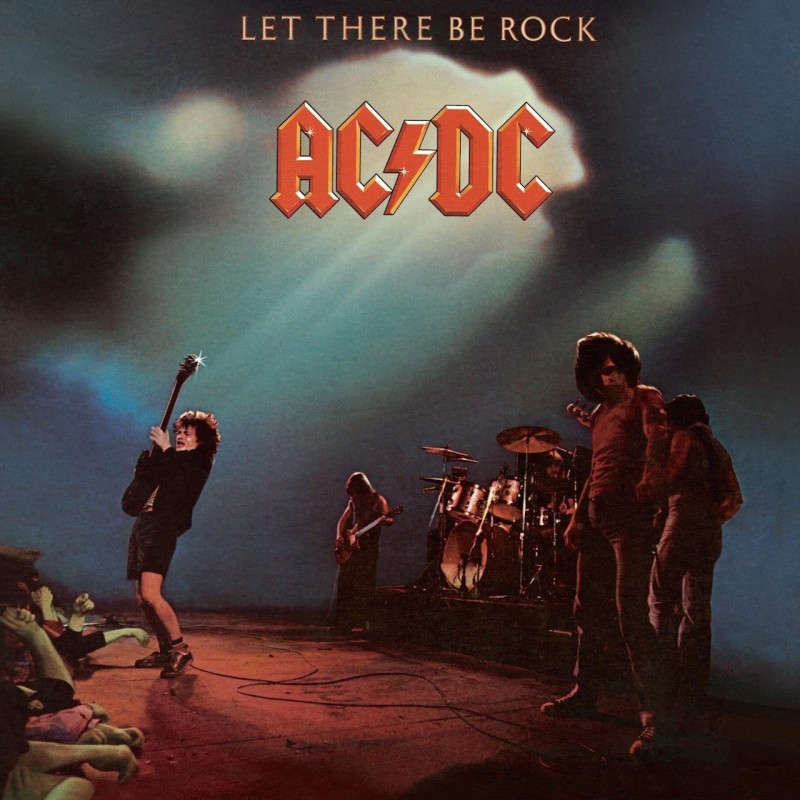
1977, 7.5/10
Usually, I’m stringent about listening to albums many times before rating and reviewing them, but I’m on a long haul flight with a limited selection of albums and a lot of spare time. And if there’s a candidate for a band whose albums are decipherable after a handful of listens, it’s Australian hard-rock titans AC/DC. The band have a great sound, based around Malcolm Young’s bluesy riffing, Bon Scott’s wail, and Phil Rudd’s simple, driving beats. They milk the sound for the entirety of Let There Be Rock, and dropping the guitars on the verse of the title track is as far as they venture from it.
This makes AC/DC a difficult proposition to sit through on a bad day; when they don’t have a memorable vocal hook or guitar riff to build around, like ‘Dog Eat Dog’ they’re monotonous. But there’s strong material on Let There Be Rock; ‘Go Down’ is a strong opener while ‘Bad Boy Boogie’ rocks, while the introspective decadence of the lyrics varies from their standard rock and roll braggadocio. ‘Problem Child’ is an archetypal AC/DC song that they’ve probably written dozens of times, but it’s still a blast.
I’d never heard an AC/DC album before two runs through Let There Be Rock, but it’s exactly what I was expecting – fun, energetic bluesy rock that’s likeable even though the group’s musical and thematic palettes are limited.
Aerosmith
The Best Of
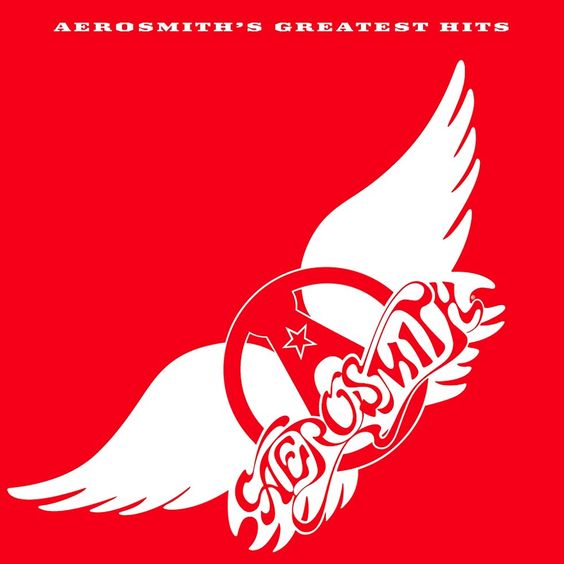
1980, 4.5/10
I tend to come around to most lauded classic rock bands eventually, but Aerosmith are a definite exception. Along with a bunch of sub-Rolling Stones riff rockers, their major contribution to posterity seems to be their power ballad.
Actually, ‘Dream On’ is my favourite song on Greatest Hits; it has an appealing early morning optimism that contrasts with the predictable late night decadence that’s on show for the rest of the album. Elsewhere, there’s not too much to report; a whole slew of riff-rockers followed by a cover of The Beatles’ ‘Come Together’ that adds nothing to the original, and a turgid arrangement of ‘Remember (Walking In The Sand)’. ‘Walk This Way’ stands out among the riff-rockers because it has the catchiest riff, but the 1986 Run–D.M.C. remake essentially makes it redundant.
Aerosmith’s basic sound is appealing, but it’s a bad sign where a band needs to pad out a ten song compilation with two covers, and I’d suggest exploring large portions of The Rolling Stones’ catalogue before bothering with these unimaginative imitators.
Bread
Retrospective
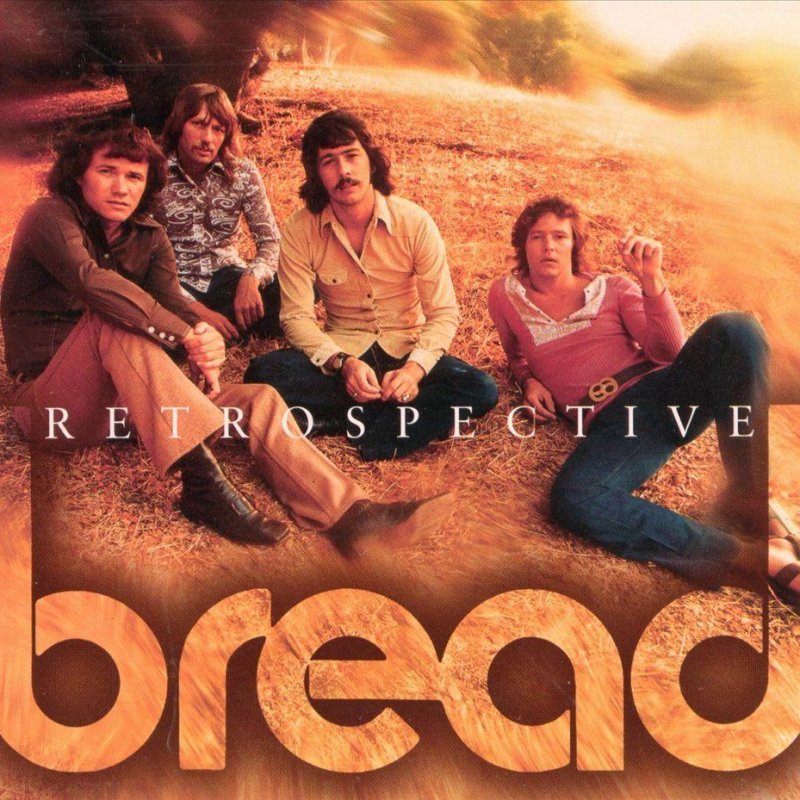
1996, 7/10
I know that I’m not supposed to like Bread, but before I started buying CDs I used to listen to classic pop radio a lot, and when I stopped I found myself missing Bread ballads like ‘It Don’t Matter To Me’ and ‘Everything I Own’. Just before Christmas one year, when I’d been working long hours in my part-time supermarket job, I gave into temptation and bought this anthology on sale.
It’s obvious why Bread are loathed by critics and serious music fans alike; they’re stuck in mid-1960s British Invasion pop mode in the late sixties, moving onto singer-songwriter material a few years behind the eight ball, they’re moralising enough to be a Christian band, and their best songs are soppy and plastered in strings. Leader David Gates is the antithesis of a rock star; moustachioed, married to his childhood sweetheart for 40 years and writing lyrics lamenting sexual permissiveness (“in this day and age………people changing partners like they change their underwear”) and advising his daughter to be sensible in courtship (“don’t fall in love with the first man that you see”).
The lengthy liner notes attempt to revise Bread’s place in history, emphasising the contributions of the other band members, but it’s hard to buy this due to the talent imbalance between Gates and the Robb Royer-James Griffin writing team; Gates’ plaintive ballads are the group’s most memorable songs, and even his occasional rock songs overshadow Griffin’s and Royer’s contributions. You have to love the exhaustive booklet; Gates remarks that drummer Mike Botts made “a significant contribution on the percussion side” and confesses that not only that he never actually found a diary underneath a tree, but if he had he would have turned it in to the authorities without reading it.
For Bread fans this double set’s terrific; covering about 50% or 60% of the group’s studio output and throwing in a whole bunch of Gates’ solo work. For me it’s too exhaustive; I could make a really enjoyable single album out of it, but I’m not too interested in hearing the Gates’ sappy solo ballads or mediocre Robb-Griffin blues rock. But I think that a lot of their best songs do stand up to scrutiny; Gates is a wet blanket, but he’s a wet blanket with great melodies, and Bread’s best material does have a strong emotional undercurrent. It’s mostly love songs but with Gates as a rare example of a celebrity with a successful first marriage, maybe he’s a guru to whom we should all be listening to for advice.
The liner notes draw a contrast between Bread’s self-titled debut and The Band’s early work. Bread are too straitlaced and poppy for the comparison to be valid, but their debut material is more eclectic and less overtly commercial than their later work. Gates is already demonstrating strong melodies and pop sense with ‘Dismal Day’ and ‘London Bridge’. On the other hand, the material from their breakthrough second album Manna is weaker; apart from the hit ‘Make It With You’ and Gates’ epic ‘Been Too Long On The Road’ there’s nothing particularly impressive. Single ‘It Don’t Matter To Me’, a reworking from their debut, is another highlight, with a terrific middle eight from Gates.
On The Waters features another mellow Gates ballad, ‘If’, as well as the fun tossed off rock song ‘She Was My Lady’ where Gates lets his hair down a little. 1972’s Baby, I’m A Want You stands out as their strongest effort with a string of classic Gates ballads (the title track, ‘Everything I Own’, ‘Diary’), a pair of really pretty Royer/Griffin songs (‘Games of Magic’, ‘Just Like Yesterday’), Gates’ dopey McCartney-like ‘Daughter’, and ‘Mother Freedom’, a surprisingly aggressive political rock from Gates. The band’s also strengthened by the arrival of sixties sessionman Larry Knechtel, famous for his piano in ‘Bridge Over Troubled Waters’, who helps bring a more solid band feel to the record. Final record Guitar Man seems disappointing in comparison; only the title track with Knechtel’s weird guitars leads and the moody ballad ‘Aubrey’ really stand out.
The compilation tails off about ten tracks into the second disc; despite a couple of highlights, most of Gates’ solo songs make Bread’s work look hard edged and cynical in comparison. The low-light is ‘Took The Last Train’, Gates’ attempt at a crossover disco hit in the late 1970s, but slow paced and genteel. There are highlights among the solo tracks; ‘Clouds’ is a pretty piano ballad with some terrific analog synth widdling in the background, and ‘Never Let Her Go’ is a nice strum-along that Gates wrote back in 1964. There’s also material from Bread’s 1976 comeback album Lost Without Your Love; the title track is one of their best moments, a pretty piano ballad that suddenly goes into a funky guitar break, but the rest of the material is pretty underwhelming.
I have mixed feelings about Retrospective; I feel embarrassed having it lying round in my CD collection, and I often toy with the idea of condensing it down to a single disc, but just occasionally I’m in the mood for slick and soppy hits.
The Carpenters
Gold
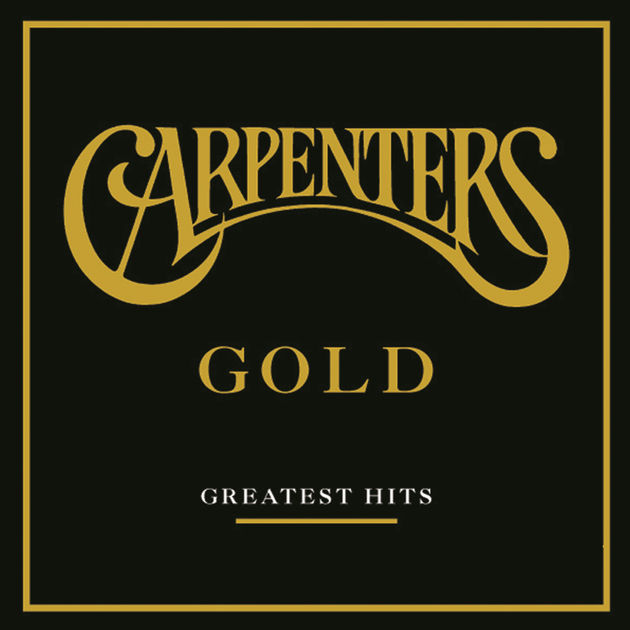
2000, 8.5/10
They’re sometimes dismissed as soft-rock light-weights, but California’s The Carpenters often captured magical moments of pop perfection. Their stock has risen with endorsements from Sonic Youth’s Kim Gordon, but the songs were always there, fronted by Karen Carpenter’s voice with its honey ache. Richard Carpenter’s arrangements are radio-friendly but interesting – famously the unexpected fuzz guitar solo in ‘Goodbye To Love’. I haven’t been brave enough to venture into the duo’s studio albums, but this twenty song compilation provides an excellent summary of their career.
Based on these twenty songs, their earliest work is their strongest, fresh faced and with Karen’s unique drum work helping to give them a distinctive sound. ‘We’ve Only Just Begun’ started as a bank advertisement, but it’s transcendent in its hope, while ‘Rainy Days and Mondays’ is exquisitely melancholic. They can be too sickly sweet on ‘Top of the World’, but songs like ‘Close To You’ and ‘Superstar’ are elegant and enjoyable.
There also a surprising late period highlight, a cover of Klaatu’s ‘Calling Occupants of Interplanetary Craft’, which fashions a terrific record out of questionable elements like a radio voice-over, alien sound effects, and a massed choir. The last recording here, ‘Touch Me When We’re Dancing’ shows the group updating their sound for the 1980s, but Karen lost her battle with anorexia in 1983 and the world lost a very gifted vocalist.
Sure it’s radio friendly, but The Carpenters often projected a sensation that’s comforting, not calculated, and their best songs tapped into a well of emotion.
Eric Clapton
Timepieces – The Best of
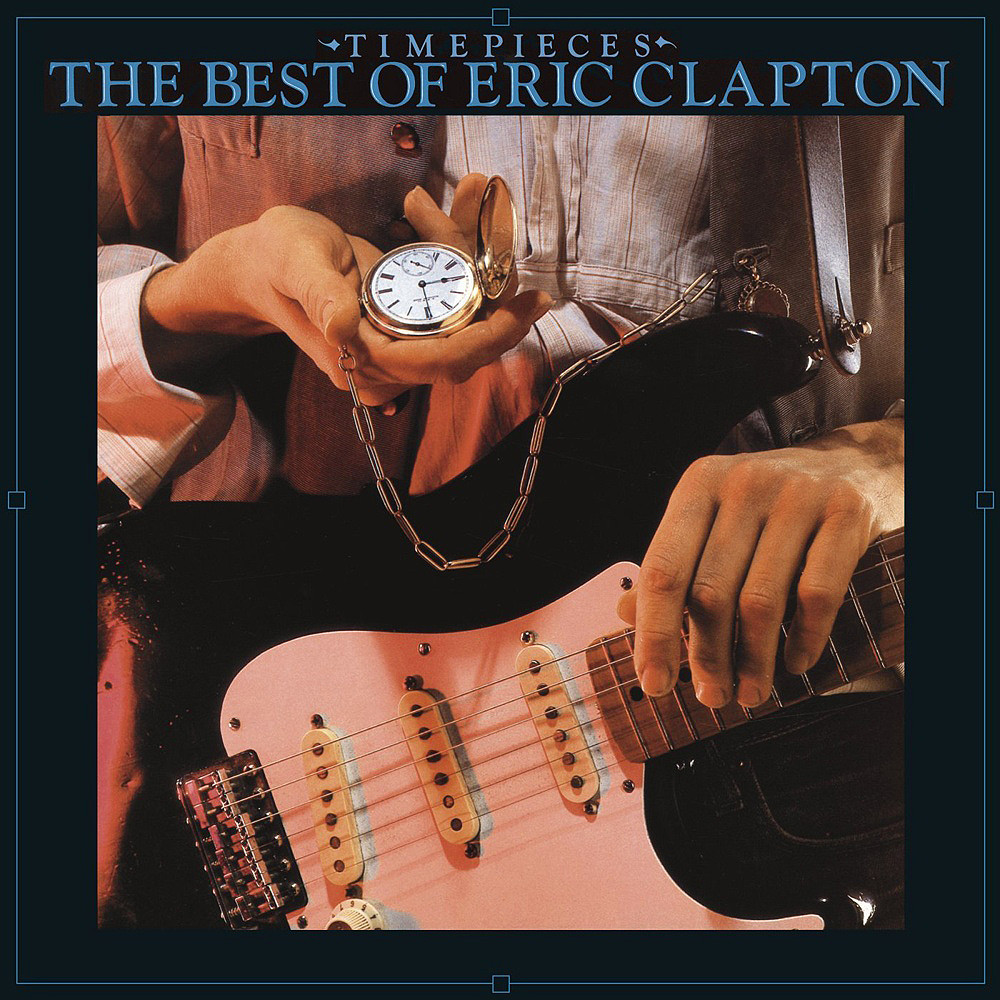
1982, 5/10
In 1965, Eric Clapton left The Yardbirds because he felt that they had strayed too far from their blues origins and too close to the mainstream with their hit ‘For Your Love’. But after some stellar work with Cream in the late 1960s, and with Derek and the Dominoes in the early 1970s, Clapton himself drifted to the mainstream in his solo career, peddling extremely smooth songs like ‘Wonderful Tonight’.
Clapton wrote ‘Wonderful Tonight’; elsewhere he rarely puts pen to paper, covering Bob Marley, Bob Dylan, Johnny Otis, and J.J. Cale (twice) – it feels like the only thing that solo Clapton has to contribute to the world of popular music is his smooth guitar leads.
The key redeeming feature of Timepieces is the magnum opus ‘Layla’, Clapton’s anguished plea of love to George Harrison’s wife. The raw power and emotion are stunning, while the extended piano led coda is memorable in its own right – but of course it’s better heard on its parent album, from Derek and the Dominoes in 1970.
There are a few other passable songs towards the end of Timepieces -‘Promises’ and ‘Let it Grow’ are both pretty and inoffensive – but for me, Clapton ceased to be interesting after 1970, switching from dynamic blues to formulaic adult contemporary.
The Doobie Brothers
Listen To The Music: The Very Best Of
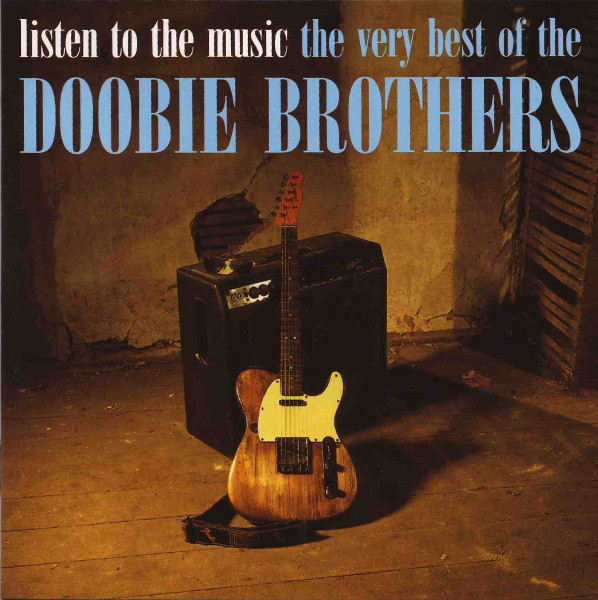
1993, 5.5/10
The original Doobie Brothers (according to the perceptive liner notes: “widely reputed to be a reference to a joint or marijuana cigarette”) were a funky guitar band with two drummers, reliably delivering catchy hits such as ‘Long Train Runnin”, ‘Listen To The Music’ and a much improved version of The Byrds’ ‘Jesus Is Just Alright’.
The Doobie Brothers were less one-dimensional than those jangly, radio-friendly singles suggest, with Tom Johnston turning in a convincing vocal performance on their cover of Motown’s ‘Take Me In Your Arms (Rock Me A Little While)’ and the group turning up their amps for the classic riff-rocker ‘China Grove’. Second guitarist/vocalist Patrick Simmons is the unsung hero, supplying a more plaintive edge with the hick chart-topper ‘Black Water’ and ‘South City Midnight Lady’. As the titles suggest (add the rock genericisms of ‘Rockin’ Down The Highway’ and ‘Without You’ to the list) none of their songs are particularly profound, and they give the general impression they’re mainly in it for the money and girls, but their hits are exactly the sort of 1970s songs that give classic rock radio body, bounce and shine.
In 1975, Johnston fell ill during a tour, and was replaced by vocalist and keyboard player Michael McDonald. McDonald’s distinctive white soul vocals are effective, and ‘What A Fool Believes’ is a Yacht Rock masterpiece. But the rest of the McDonald fronted material is monotonous soft-rock, like ‘Minute By Minute’ and ‘Real Love’. I like McDonald, but he’s a weird match in a fun, rocking band, and it’s hard to imagine that the two distinct eras of the band have many fans in common – they’d be better served by two different compilations covering their two different eras.
Roy Harper
Valentine
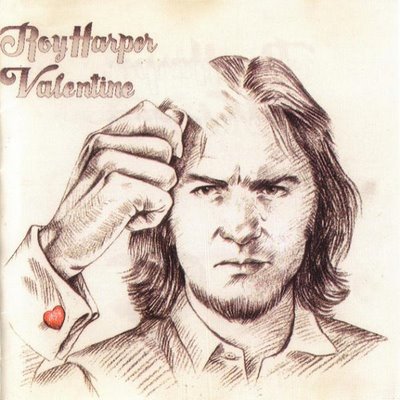
1974, 7.5/10
English folkie Roy Harper is an idiosyncratic figure, using his undeniable talents to promote political interests and an often unsavoury hippie lifestyle. But he has such a warm lilting voice, excellent guitar technique and fine sense of melody, that he almost always comes across charmingly, even if his lyrical stance lacks political correctness. Valentine is a collection of outtakes from his acclaimed early 1970s releases Stormcock and Lifemask, but it hangs together well as an individual statement. As the title implies, most of the tracks are romantically themed. In his worldview it seems like women are mainly around for sex, cooking and cleaning, but his general likability cancels out the less savoury elements of his lyrics, even if ‘Magic Woman (Liberation Reshuffle)’, where Harper brags of seducing a feminist, takes it a step too far. Many of the tracks were recorded live in studio with just Harper and his guitar, sometimes with some nice orchestration laid over the top. The only full blown rock song is ‘Male Chauvinist Pig Blues’ where Harper teams up with Jimmy Page to create an interesting collage of guitars, assisted by Keith Moon on drums.
Most of Valentine is low key and charming; Harper includes a charming cover of ‘North Country’ while ‘Twelve Hours of Sunset’ has the dusky ambience that its title implies. Harper’s liner note description of ‘Acapulco Gold’ as “lounge lizard music with a sting” is entirely accurate, as it travels into another sexually themed bridge, while ‘Commune’, perhaps the album’s best song, is another charmer despite some disturbingly intimate images. Despite his overuse of sexual themes, Harper is an accomplished enough lyricist as well, with thoughtful phrases like “love isn’t jealous/or bitchy and callous/she’s here for us all and she’s ours.” ‘Forever’ is a nice humble closer, while ‘I’ll See You Again’ is a soaring ballad, underscoring the fragility in Harper’s voice. Apart from 1971’s classic Stormcock, I haven’t been particularly impressed by Harper’s other albums, but his best moments are very good.
Janis Joplin
Pearl

1971, 7/10
Pearl was assembled posthumously after Texan blues singer Janis Joplin overdosed in 1970, joining the 27 club. It was her only album with her newly formed band Full Tilt Boogie. The instrumental ‘Buried Alive In The Blues’ is evidence of the album’s tragic interruption; Joplin planned to lay down the vocal track the day after she died.
Joplin’s point of distinction was her hyper-charged vocal technique; inspired by legendary blues woman Bessie Smith, her voice rarely betrayed that she was white and not particularly large. She was once asked to sing a gospel song named ‘Quiet About It’, but refused on the grounds that she couldn’t talk to her God quietly; Joplin rarely did anything by half measures. Full Tilt Boogie provide her with an ideal backing, earthy and driving, although Joplin’s vocals naturally take centre stage. The album’s name is taken from Joplin’s nickname: “Pearl” is credited with acoustic guitar on ‘Me & Bobby McGee’.
My favourite tracks are the two which deviate furthest from blues; Kris Kristofferson’s ‘Me & Bobby McGee’ is a standard, and Joplin’s version is definitive; she can’t resist shredding her voice on this relatively mild country ballad, and the end result is powerful. ‘Half Moon’ breaks the musical mould the furthest, with a funky arrangement. Meanwhile, the entertainingly throwaway a capella ‘Mercedes Benz’ (“My friends all own porsches/I must make amends”) is the other song that stands out among Joplin’s energetic blues workouts and dramatic ballads.
Joplin’s enthusiastic blues screeching has a certain charisma, and even incomplete, Pearl has some amazing moments.
John Lennon
Plastic Ono Band
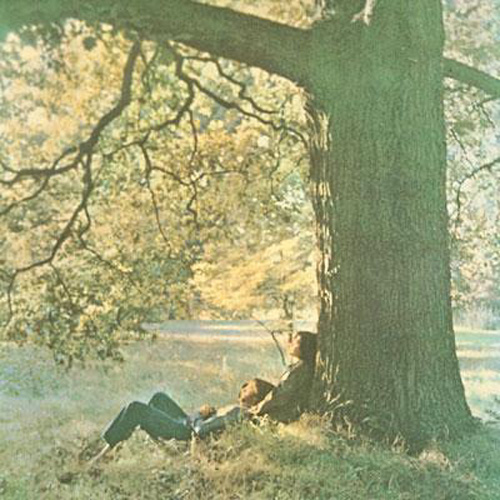
1970, 8/10
Plastic Ono Band was John Lennon’s musical therapy after leaving The Beatles, with the self examining lyrics covering Lennon’s relationship with his mother, his identity, and religion. Producer Phil Spector uncharacteristically gives the songs a stripped down treatment, with John’s piano and guitar joined by Ringo Starr on drums and bassist Klaus Voormann.
‘Isolation’, ‘Love’, ‘Look At Me’, and the second half of ‘God’ are all beautiful, benefiting from the stripped down treatment. ‘Look At Me’ is particularly appealing, with Lennon more vulnerable then elsewhere on the album. ‘Well, Well, Well’ is a nasty and memorable rocker, while ‘Working Class Hero’ is arguably the highlight with a left-wing critique of society’s conventions: ‘keep you doped with religion and sex and TV/and you think you’re all clever and classless and free/But you’re still peasants as far as I can see.” There are songs that feel more like exercises in therapy than inspired songwriting; the self-referential ‘Hold On’ doesn’t hold up, while songs like ‘I Found Out’ and ‘Remember’ are musically thin.
If you enjoy left-field Beatles’ tracks like ‘I Am The Walrus’ and ‘Tomorrow Never Knows’, it’s definitely interesting to find out more about the man behind them.
Lennon Legend: The Very Best Of John Lennon
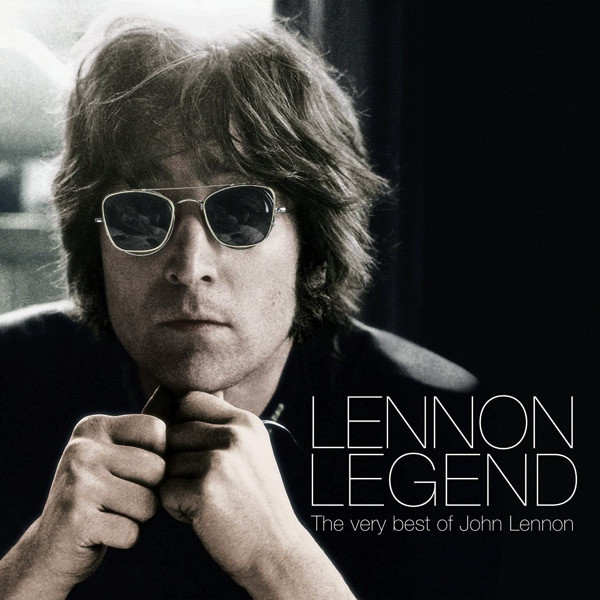
1997, 8.5/10
John Lennon’s solo career was decidedly patchy, so Lennon Legend is a useful one stop shopping solution. In any case, some of Lennon’s best songs on are non-album singles, including ‘Instant Karma!’, “Cold Turkey’ and ‘Happy Christmas (War is Over)’, so a compilation is worthwhile.
The advantage of being a credible musical figure, who dabbles in political agitation and avant-garde experimentation, is that when you deign to perform a love song, it comes across very sincerely. ‘Woman’ is an excellent straightforward love song, while “Jealous Guy’ is another lovely ballad. Lennon shows that he has one of the finest voices in rock with his cover of Ben E. King’s ‘Stand By Me’ and the fifties throw-back ‘(Just Like) Starting Over’. Some of the very best stuff is on his singles from around the end of The Beatles’ tenure – ‘Cold Turkey’ is harrowing, whether it’s about food poisoning or heroin withdrawal, while ‘Instant Karma!’ is a raw anthem that’s Lennon’s finest solo moment. The superlative ‘#9 Dream’ is a gentler version of Lennon’s psychedelic work with the Beatles.
It goes without saying that Lennon’s solo work is a level below his work with the Beatles, but Lennon Legend represents an excellent solo portfolio. Lennon’s assassination in 1980 remains a tragedy, as his career was regaining momentum (and he had resumed contact with Paul McCartney) and there’s no predicting what would have happened next.
The Modern Lovers
The Modern Lovers
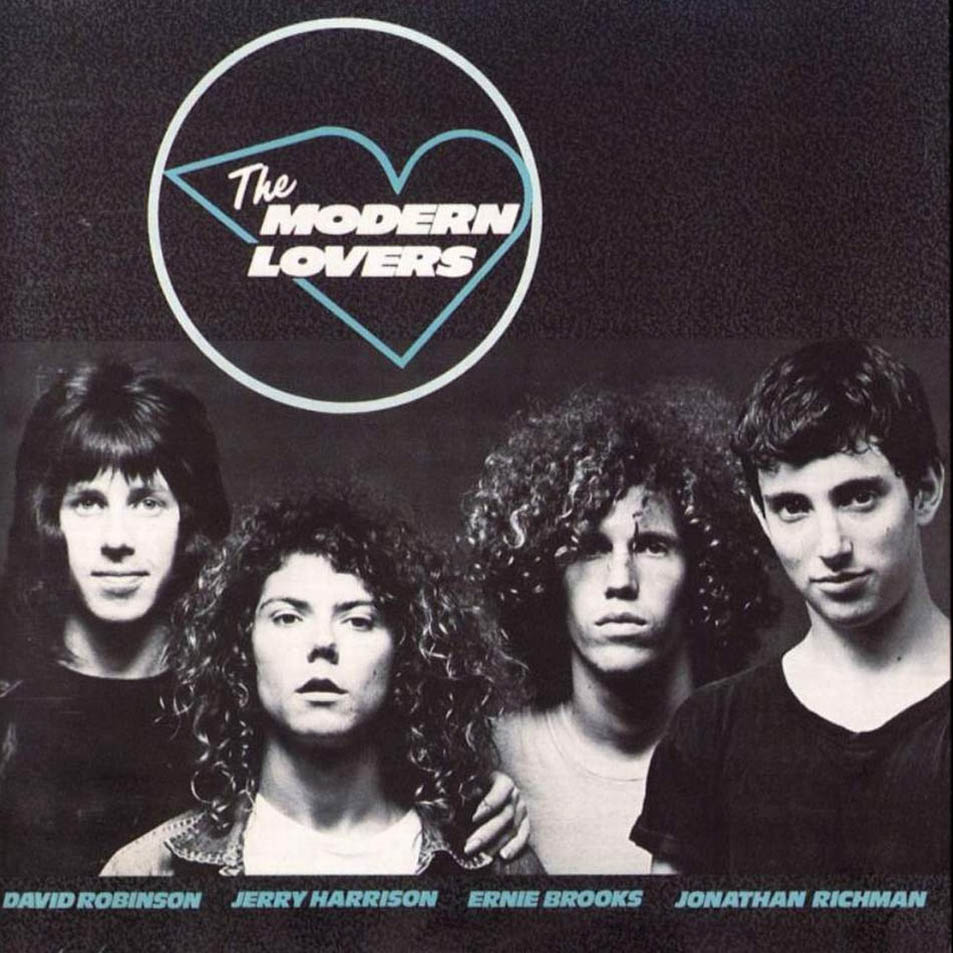
1976, 9.5/10
An album that failed to set the charts alight but proved extremely influential, The Modern Lovers was mostly recorded in 1972, well before the punk and new wave it influenced; ‘Roadrunner’ was a favourite rehearsal track for the early Sex Pistols. John Cale is the producer, and there’s an obvious trace of the Velvet Underground in The Modern Lovers’ sound, with the raw guitar work and lyrical honesty. But while Lou Reed oozed New York decadence, Richman is his young and awkward suburban cousin, finding meaning in the small details. Richman’s simple but effective guitar is joined by two new wave luminaries; future Talking Head Jerry Harrison on tinny organ and future Car David Robinson on drums. While the finished product is raw and loose, it’s also extremely accessible; Richman’s full of interesting stories and great hooks and vocal melodies, and any open-minded music fan should adore this record.
The closest things to standards on The Modern Lovers are the opening ‘Road Runner’, a two chord rumination on the joys of driving which Richman wrote while still a teen, and the relatively nasty ‘Pablo Picasso’, with the classic rhyme “Pablo Picasso/Never got called an asshole/Not like you.” Elsewhere, it’s all solid and all quotable; the hilariously overwrought ‘I’m Straight’ (“I’m certainly not stoned, like Hippie Johnny/I’m straight and I want to take his place”), the strangely touching ‘Dignified and Old’ and the sexual frustration of ‘Astral Plane’. Despite being cobbled together from various sessions, the twelve track CD version, released in 1989 on Rhino, hangs together perfectly and its unique sense of personality, its solid musical foundations and its huge historical importance are tangible immediately.
Even if Richman’s subsequent career has been erratic, his debut is an effortless classic; a summation of an awkward suburban adolescent embracing innocence in the face of a cynical world.
John Phillips
John Phillips (John, the Wolf King of L.A.)
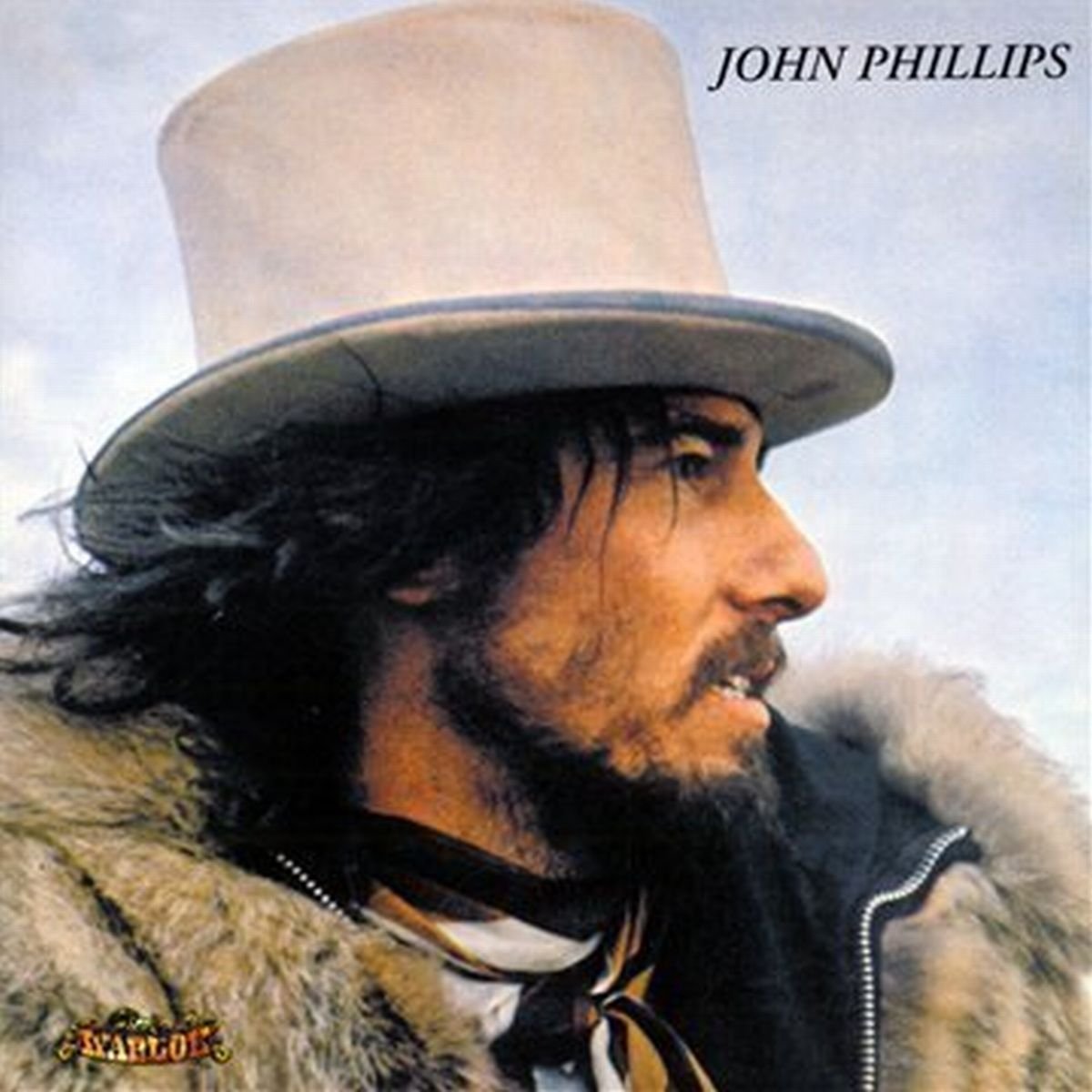
1970, 8/10
John Phillips was the mastermind behind The Mamas & the Papas. He was the group’s main songwriter, but also the weakest of their four vocalists – often down in the mix compared to Michelle Phillips, Mama Cass, and Denny Doherty. After a string of richly harmonised folk-rock hits in the 1960s, the group had split in 1968, although they’d reconvene for the contractual obligation record People Like Us in 1971. Phillips released his only solo album, John, the Wolf King of L.A., in 1970. Surprisingly it was out of print for years until a CD reissue in 2006. It was also the only solo album Phillips released in his lifetime – distracted by heroin and cocaine, other recording only emerged posthumously, although Phillips wrote The Beach Boys’ 1988 hit ‘Kokomo’ with Scott McKenzie.
John, the Wolf King of L.A. is in step with the early 1970s zeitgeist – a personal and low-key record, where Phillips’ limited vocals add a welcome intimacy. There are traces of country, but it’s full of catchy tunes that would fit a Mamas and Papas record; Doherty later said that the melodies would have made for a great band record. Given his background in pop, it’s perhaps not surprising that Phillips favours female backing vocals, so Wolf King of L.A. is more bombastic in places than his L.A. contemporaries.
Phillips is backed by Wrecking Crew musicians Larry Knechtel, Joe Osborn, and Hal Blaine. The best song is at the front of the record; ‘April Anne’ is a tuneful country tune with lines that may have been too risque for a Mamas & Papas record (“Let an Easy Rider share your bed/But you chose the drunken gigolo instead”). ‘Mississippi’ was a minor hit single, with an inventive Cajun arrangement and lead guitar from James Burton, while ‘Someone’s Sleeping’ has a gorgeous folk-rock melody.
John, the Wolf King of L.A. is now back in print – it’s not quite a lost classic, but it’s a worthy early 1970s record that fans of the era should enjoy.
Rush
Retrospective, Vol. 1 (1974-1980)
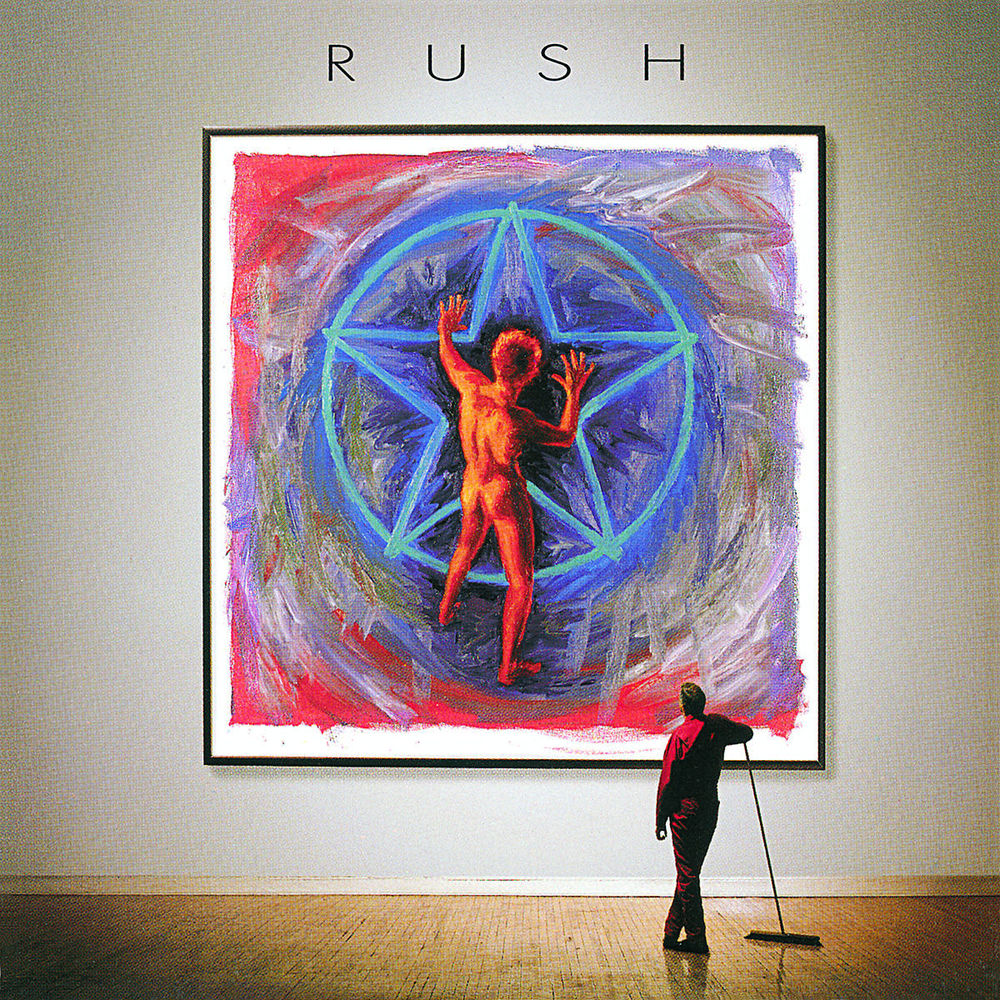
1997, 6.5/10
Canadian progressive rock trio Rush have a devoted cult following, while they’re often derided by critics. While their musicianship is very strong, they’re an acquired taste, particularly bassist Geddy Lee’s high pitched vocals and drummer Neil Peart’s philosophical lyrics. Peart’s lyrics are drawn from sources like Ayn Rand, and often awkwardly shoehorn ponderous lyrics into pop songs, like this couplet from ‘The Trees’:
The trouble with the maples
And they’re quite convinced they’re right
They say the oaks are just too lofty
And they grab up all the light
With the vocals and the lyrics both significant impediments to my enjoyment of Rush, I have a somewhat ambivalent relationship to them – I struggle to take them seriously, but enjoy enough of their songs to happily own a couple of compilations, as well as their most acclaimed album, 1981’s Moving Pictures. Counter-intuitively, their initial 1974-1980 work isn’t their best period, even if it has its moments. Rush took a while to find their feet, and then adapted to the 1980s better than most other bands of their era. Their best era was in the early 1980s; this compilation goes through to 1980’s Permanent Waves, that album’s ‘The Spirit of Radio’ is the opener, and it’s a highlight.
In between the highlights, there are too many faceless rock songs (‘Anthem’, ‘Finding My Way’), aimless epics (‘By-Tor and the Snow Dog’) or pieces where the ridiculous lyrics make it difficult to enjoy the song (‘The Trees’, “I will choose Freewill”). But there are a handful of songs that permit Retrospective I space in my music library – ‘Xanadu’ is a terrific eleven minute epic with impressionist lyrics, the instrumentals ‘2112 Overture’ and ‘La Villa Strangiato’ present Rush without vocals or lyrics, while ‘The Temples of Sirinx’ is head-banging fun. ‘Closer to the Heart’ is humble and acoustic, while ‘The Spirit of Radio’ presages their more successful work in the 1980s.
I like Rush in small doses, but have never felt the urge to explore their studio albums from this era further – I’m happy with this single disc sampler as a summary of their 1970’s work.
Carly Simon
No Secrets

1972, 6/10
Carly Simon released her third album, No Secrets, in the same month that she married James Taylor. Led by the single ‘You’re So Vain’ and released in the singer-songwriter era, No Secrets topped the charts for 5 weeks. But Simon lacks the class of contemporaries like Joni Mitchell and Carole King. Her strident voice works on the takedown of ‘You’re So Vain’, but it doesn’t suit the more intimate songs. As the title implies, No Secrets is notable for its sexual candour – the title track and ‘Waited So Long’ are more open than you’d expect from a female writer in this era.
‘You’re So Vain’ is a magical single, Simon delivering some cutting lines and rhyming “gavotte” with “apricot”. Mick Jagger sweetens the chorus with his backing vocals. The MOR production of the final song ‘When You Close Your Eyes’. The screech in Simon’s voice means she struggles with the gentler material, most of her melodies aren’t memorable, and it feels out-of-step, like she’d be more comfortable in a pre-rock’n’roll musical landscape.
It’s not like Simon is a one-hit wonder – her Bond theme ‘Nobody Does It Better’ and the 1980 single ‘Jesse’ are both strong. But she’s not a convincing singer-songwriter on No Secrets.
Rick Wakeman
The Six Wives Of Henry VIII
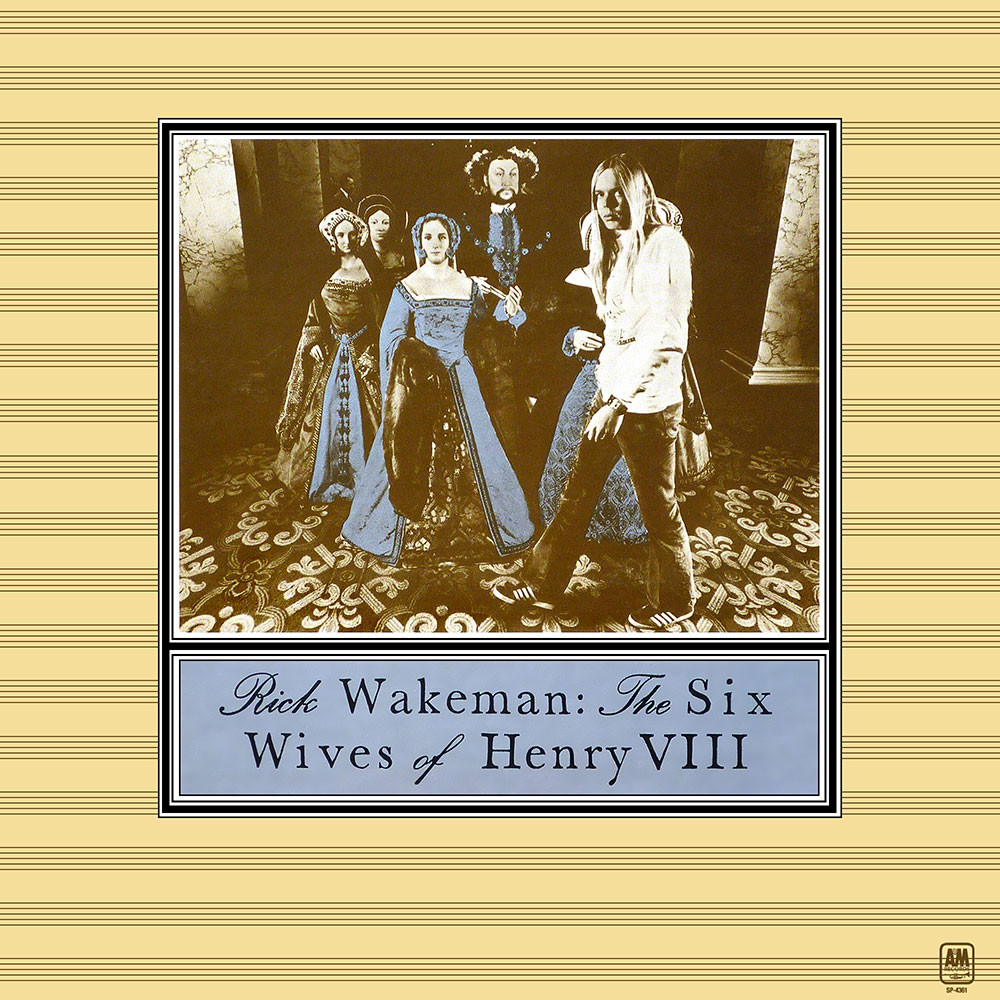
1973, 8/10
As a history major, keyboard enthusiast, and prog-rock fan, I feel like the target market for Rick Wakeman’s classical-prog fusion on his first self-written solo album, The Six Wives Of Henry VIII. There are full band arrangements on every track except ‘Jane Seymour’, with Wakeman’s former band The Strawbs and various members of Yes all providing backing. The inside photograph shows Wakeman surrounded by a grand piano, Hammond organ, electric piano, and pairs of Moogs and Mellotrons, while he also employs a harpsichord, ARP, and Church organ.
Wakeman devised the concept for The Six Wives Of Henry VIII after he read a book about Henry VIII in an airport. Its six tracks represents Henry’s six wives, with Wakeman attempting to express the musical character of each in a song. This concept occasionally seems a little tenuous, although there are certainly tangible reference points; Henry’s flirtatious wives ‘Anne Boelyn’ and ‘Catherine Howard’ both have moments of exuberance in their themes, before ending mournfully as Henry had them beheaded; ‘Anne Boelyn’ ends with a musical quotation from the hymn ‘The Day Thou Gavest Lord Has Ended’. ‘Jane Seymour’, who died after giving birth to Henry’s only son, has a sorrowful theme, while ‘Catherine Parr’, a favourite wife who outlived Henry, ends the album on a triumphant note.
If you have trouble remembering which wife is which, there is a pattern: Divorced, Executed, Died, Divorced, Executed, Lived. Incidentally, Henry VIII executing/divorcing his wives for bearing the wrong sort of baby (i.e. girls) and/or for barrenness is ludicrous when (a) it’s the male that determines the gender of the baby and (b) the man was by all accounts riddled with syphilis. If nothing else, The Six Wives Of Henry VIII has an educational back sleeve that profiles each of the wives.
‘Catherine of Aragon’ is a nice concise opener, while ‘Anne Boelyn’ launches into ragtime. ‘Catherine Howard’ and ‘Catherine Parr’ both have memorable central themes; the former mournful, and the latter bombastic. ‘Jane Seymour’ breaks the mould most significantly with an organ dominated performance. ‘Anne of Cleves’ is the least interesting piece, which seems appropriate as she seems to be the least interesting wife.
Wakeman isn’t about to be mentioned in the same breath as Bach and Mozart, but I find The Six Wives Of Henry VIII highly entertaining.
Back to 1970s Album Reviews….
3 Comments
Leave a Reply
Related Pages
About
Aphoristic Album Reviews is almost entirely written by one person. It features album reviews and blog posts across a growing spectrum of popular music.
Review Pages
Read about the discographies of musical acts from the 1960s to the present day. Browse this site's review archives or enjoy these random selections:
Blog Posts
I add new blog posts to this website every week. Browse the archives or enjoy these random selections:
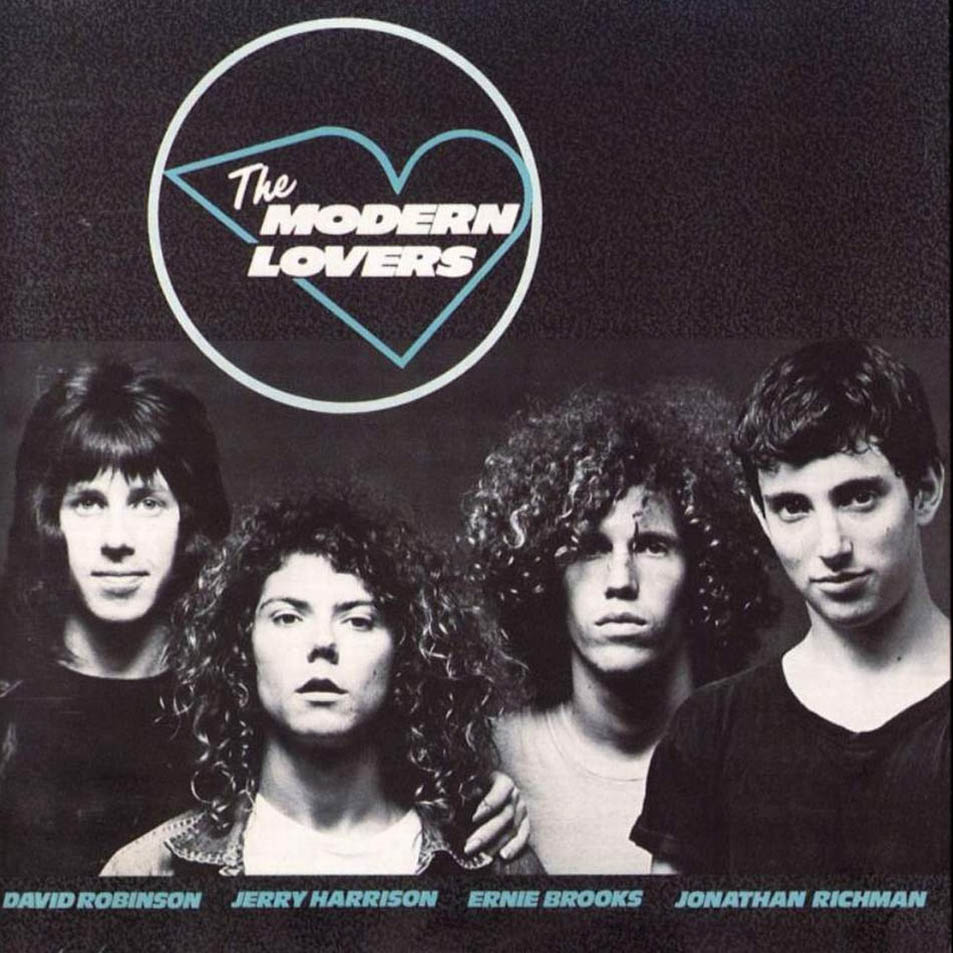
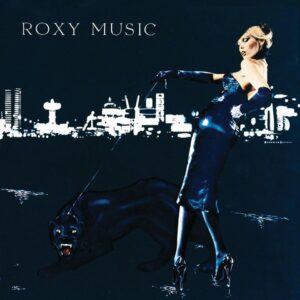
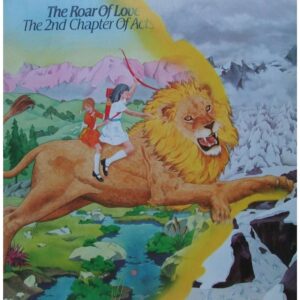
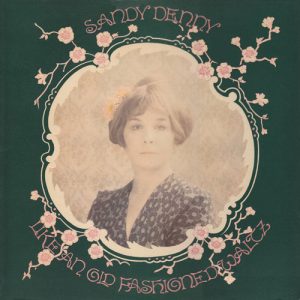
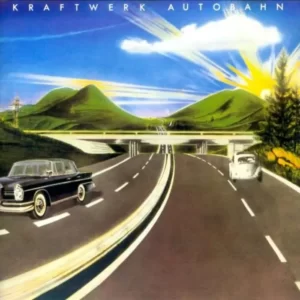
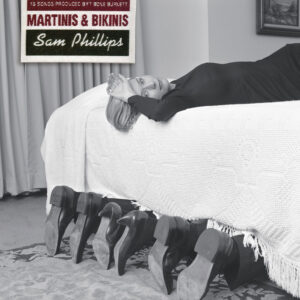

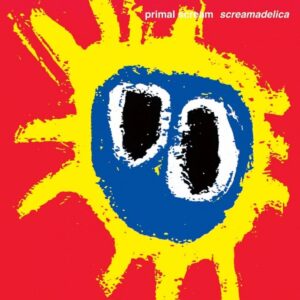
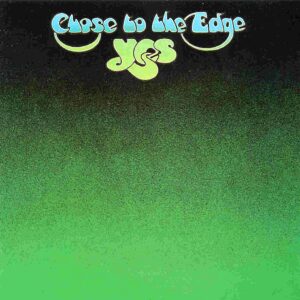
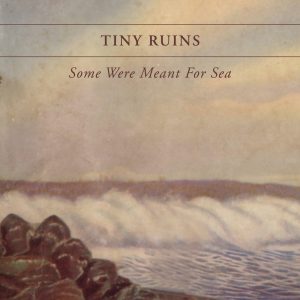

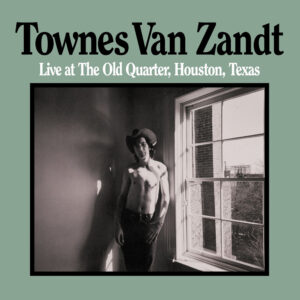

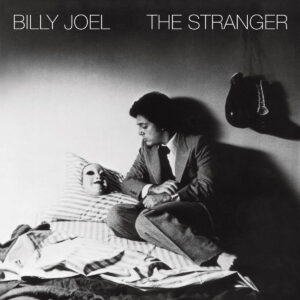
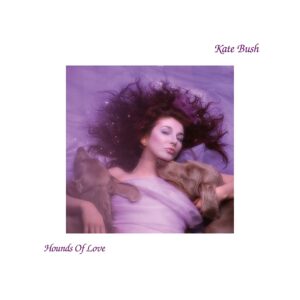
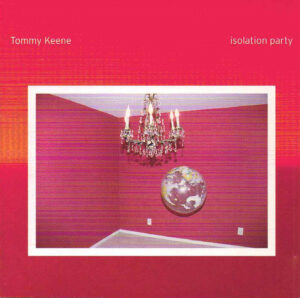
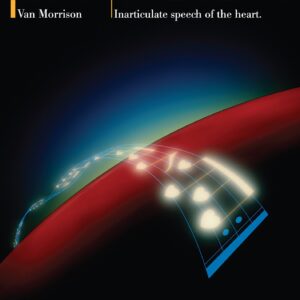
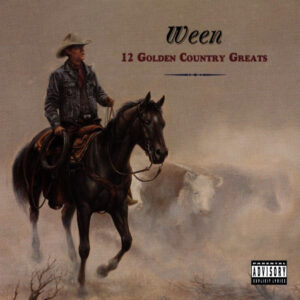

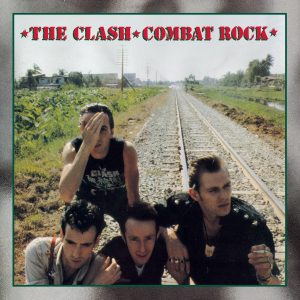
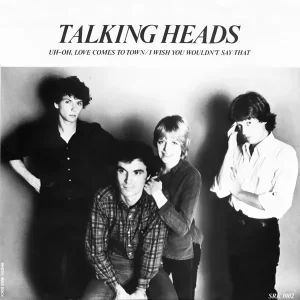




The first time I heard the carpenters close to you I was about 10 or 11. I remember thinking it was so hopelessly naive it couldn’t help but end badly. That’s really cynical for a child that age. Now I love that song.
I used to mock it, but it’s very good. I’m not huge on Bacharach in general though – Karen Carpenters able to inject a bit of sadness in there.
“…their hits are exactly the sort of 1970s songs that give classic rock radio body, bounce and shine.”
Not a big Doobie Brothers fan either (they could have at least tried to make better music to get past the stupid name) but that is album review gold.
Thanks for giving the Carpenters some love. You listened and thought it was sappy pop as a young boy and could never admit to liking it,but you listened.
As time has gone on you realize she had quite a voice and the best of the songs (though sappy) were quite well done.
Poppa John Phillips and “Mississippi” was kind of one of those vague memories from the early memories from the early 70s that went unconfirmed for so many years I began to wonder if it was real, couldn’t remember artist or name, then through the wonders of YouTube was rediscovered, catchy.